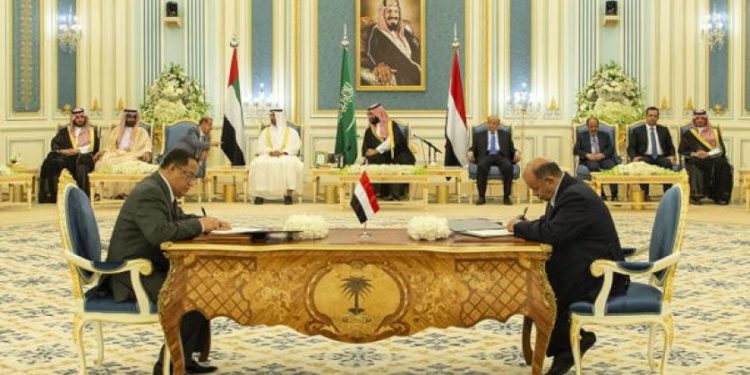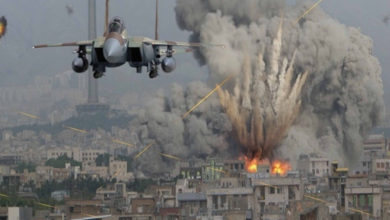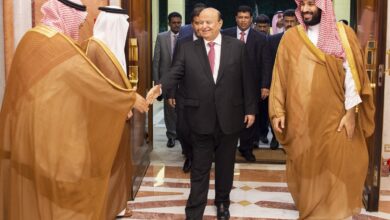Broad rejection of the Riyadh Agreement on Yemen

The Riyadh Agreement, sponsored by the Saudi regime between the Yemeni legitimate government and the UAE-backed separatist transitional council, has been widely rejected in Yemen.
The Yemenis have labeled the Yemenis against the Riyadh agreement to express their rejection of the agreement because of the dangers it entails to perpetuate the occupation of the Saudi regime and impose guardianship on it, a position expressed by political components in the country.
Yemen’s Southern National Salvation Council described the Riyadh agreement as giving legitimacy to the Saudi occupation and the right to run local affairs.
The Southern Council said in an official statement that it rejects the “Riyadh agreement and adheres to the rejection of the occupation and its cronies,” while stressing that it rejects “any agreement that does not provide for the departure of foreign forces and preserve our independence.”
The Rescue Council stressed that “we reject any agreements that do not derive their legitimacy from the people through democratic means,” adding that “the Riyadh Agreement was drafted to give legitimacy to the Saudi occupation and the right to manage local matters.”
The government of Yemeni President Abed Rabbo Mansour Hadi and the UAE-backed Southern Transitional Council signed the Riyadh Agreement last Tuesday, which gave Riyadh control of Yemen’s administration.
The council pointed out that “the agreement gives legitimacy to regional militias affiliated abroad,” noting that “the Riyadh agreement makes access to power a reward for those who rely on the power of arms and predominance.”
He called on “all national forces to join forces and prepare to face the occupation and its cronies and topple its projects.
Yemenis are deeply indignant at an agreement between two parties that were part of the body of legitimacy fighting the Houthis and turned into warring parties, with the Houthis still in control of the capital Sanaa and other cities, amid a major crisis that has plagued the country since September 2014.
According to Yemeni journalist and political analyst Abdullah al-Sami, what he calls “comics” is the culmination of what the coalition has been doing for more than two years, when it froze ground battles against the Houthis.
Al-Sama’i said that the legitimacy has not been able for two years to achieve any military advances through its forces, “which can be considered major victories against the Houthis, and whenever there is little progress, the National Army forces are bombed by coalition fighters.”
He said that the coalition, led by the Al-Saud regime, “diverted the course of the battle and fabricated side battles through its tools with the legitimacy that he claims to have come to support and support.”
The Southern Salvation Council seeks to stop the war in the country, lift the siege imposed by the coalition led by the House of Saud, and save Yemen from the state of division and fragmentation.
The council, which was announced on October 19, chose a governing body to represent it from several southern governorates. Major General Ahmed Qahtan, a member of the Yemeni Shura Council and former director of al-Mahra security, was elected chairman.





